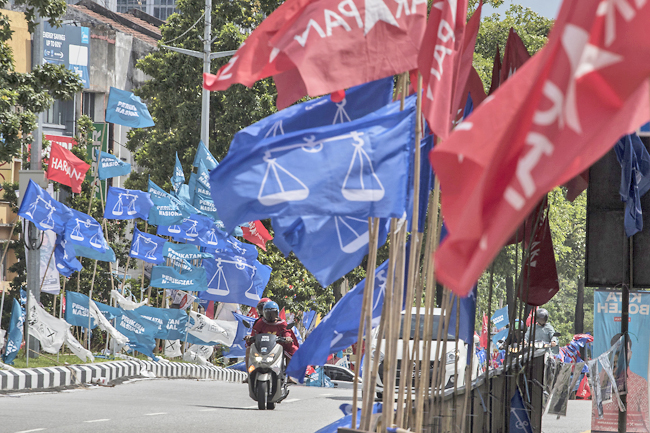KUALA LUMPUR (AFP) – Rival blocs claimed yesterday they had secured the support they needed to form a government after Malaysia’s hotly contested polls saw no party emerge with a clear majority of parliamentary seats.
Veteran opposition leader Anwar Ibrahim said his coalition had enough seats to form the country’s next government, which would allow him to become prime minister.
Former premier Muhyiddin Yassin – who heads the rival Perikatan Nasional (National Alliance) grouping – also said he was in talks to form the next administration after Saturday’s election. The stalemate comes in a country that has seen three governments in as many years.
In a bid to break the impasse, the palace yesterday asked the leaders of political parties to submit their preferred choice of coalition partners and for prime minister by 2pm today.
Home to 33 million people, Malaysia will need a ruling coalition with a strong mandate to tackle soaring food prices and an economy reeling from the COVID-19 pandemic.

While both leading political blocs claimed victory, neither offered details on the alliances they would make to form a government.
“We have now the majority to form a government,” Anwar said at a dawn news conference after hours of frenzied horse-trading negotiations through the night.
When pressed about who would enter into an alliance with him, Anwar did not give names, but said commitments had been made in writing and would be submitted to the king for endorsement.
At the end of vote-counting, Anwar’s Pakatan Harapan (Alliance of Hope) coalition won 82 seats and Muhyiddin’s Perikatan Nasional grabbed 73, official results showed.
The once mighty Barisan Nasional – dominated by jailed ex-leader Najib Razak’s United Malays National Organisation (UMNO) party – trailed far behind the rest with only 30 seats, its worst performance since Malaysia won independence in 1957.
The graft-tainted bloc said it accepted the results and that it was a “big signal from the citizens towards us”.
The election also saw the rise of an Islamic party allied with Muhyiddin’s group. The Malaysian Islamic Party, or PAS, backs a hardline interpretation of Islamic law.
Ethnic Malay parties have campaigned on a platform that claims that members of Malaysia’s majority ethnicity would lose their rights if non-Malays – such as Anwar’s multi-ethnic bloc – are elected.
Oh Ei Sun of the Pacific Research Centre of Malaysia said if Muhyiddin gets to form the government, the country is “likely to see a conservative theocratic coalition that will focus on religious and racial supremacy at the expense of effective economic management”.



















































